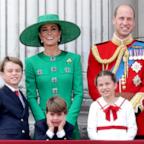Secrets of 'South Park'
Sept. 22, 2006 — -- Comedy Central's vulgar, profane, hilarious animated hit "South Park" begins its 10th season on Oct. 4 in an uncertain place.
In the past year, the show and its creators, Trey Parker and Matt Stone, won their first Emmy and were also honored with a Peabody for best electronic media. But the year was also fraught with moments of censorship that caused the show's creators to wonder if the world had changed so much in the last 10 years that "South Park" could really no longer thrive.
"What we've stood behind for 10 years is: It's got to all be OK or none of it is," Parker told ABC's "Nightline." "Because as soon as you start picking, 'Well, OK, we won't do this,' then all of a sudden the ones you did about that shouldn't be OK either. So we were starting to say, 'I don't know that this is a world that 'South Park' can live in.'"
"South Park" has been vilified as crude, disgusting and nihilistic, and the eagerness of Stone and Parker to impale every sacred cow they can reach is a major reason for its success. After all, in the fictional town of South Park, Colo. -- home to third-graders Kenny, Kyle, Stan and the evil Cartman -- everything is fair game. Even the Prophet Mohammed, who appeared as a superhero in a July 2001 episode called "The Super Best Friends."
"People told us at the time, 'You can't really draw an image of Mohammed,'" Parker says. "And we were like, well, we can. We're not Muslim, so it's OK."
In 2006, however, when Stone and Parker wanted to depict Mohammed in an episode, Comedy Central wouldn't let them. After all, Muslims worldwide had rioted over insulting depictions of Mohammed in a newspaper in Denmark.
It seemed odd to the creators of "South Park," who had been and were still allowed to depict Jesus in any number of profane ways. In fact, the episode in question, "Cartoon Wars," shows a cartoon (supposedly created by al Qaeda) in which Jesus defecates on President Bush.
"That's where we kind of agree with some of the people who've criticized our show," Stone says. "Because it really is open season on Jesus. We can do whatever we want to Jesus, and we have. We've had him say bad words. We've had him shoot a gun. We've had him kill people. We can do whatever we want. But Mohammed, we couldn't just show a simple image."
During the part of the show where Mohammed was to be depicted -- benignly, Stone and Parker say -- the show ran a black screen that read: "Comedy Central has refused to broadcast an image of Mohammed on their network."
Other networks took a similar course, refusing to air images of Mohammed -- even when reporting on the Denmark cartoon riots -- claiming they were refraining because they're religiously tolerant, the South Park creators say.
"No you're not," Stone retorts. "You're afraid of getting blown up. That's what you're afraid of. Comedy Central copped to that, you know: 'We're afraid of getting blown up.'"
"At the same time, just like we always do, we managed to get something on and say something about how we can't say something about Mohammed," Parker says.
"South Park," from its very beginning has been about mocking that which is held most sacred.
It began as a short film, "The Spirit of Christmas," made as a video cartoon for an entertainment executive to send to friends that featured Santa Claus and Jesus fighting.
Its creators have stayed true to the spirit of "Spirit," taking on Tom Cruise (implying that the twice-married father is gay), as well as Cruise's religion (Stan declares that "Scientology is just a big fat global scam"). But when the episode "Trapped in the Closet" (Cruise hides in the closet and refuses to come out) was scheduled to be rebroadcast, Comedy Central pulled the plug.
"We were told that the people involved with 'Mission: Impossible: III' demanded that show be pulled off the air," Stone says. "And it was."
Media behemoth Viacom, which owns Comedy Central, also owns Paramount Studios. At the time Paramount wanted Cruise to promote M:I:III. After weeks of negative publicity, Comedy Central agreed to broadcast the show.
In addition to the Cruise and Mohammed shows, Comedy Central hesitated before agreeing to rebroadcast an episode featuring some unseemly bleeding by a statue of the Virgin Mary that upset many Catholics.
"Going into the last run was the most sort of scared I've ever been," Parker says. "I went into the run just going, 'Wow, how many times are they going to tell us we can't do something before we bail?' Because we're ready to bail. We're ready. … We wanted to say some things, shake things up a bit. And I think we've done that, and I think we've done it in a bigger way than we ever will in the future. So it'd be nice to make some more shows and some more movies, but it'd also be really nice to go to a farm and raise some goats and have some kids. You know what I mean? I mean, that would be really nice, too.




